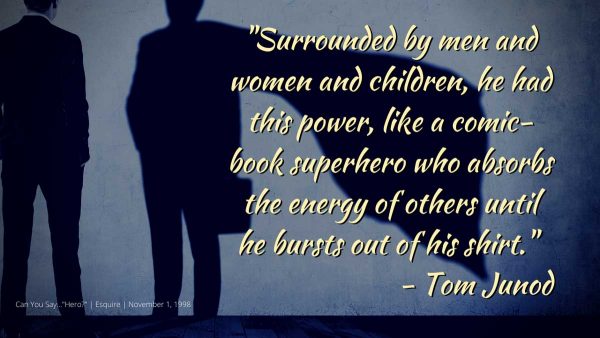I don’t know about you, but I am fascinated by Fred Rogers! Something you may or may not find odd about my fascination is that until recently I only knew…
Read More“Anything that is human is mentionable; and anything that is mentionable can be more manageable.” Fred Rogers I have a confession to make – although I am very familiar with…
Read More


